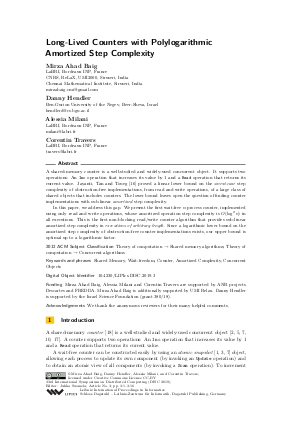LIPIcs.DISC.2019.3.pdf
- Filesize: 0.56 MB
- 16 pages

 Creative Commons Attribution 3.0 Unported license
Creative Commons Attribution 3.0 Unported license



















Feedback for Dagstuhl Publishing